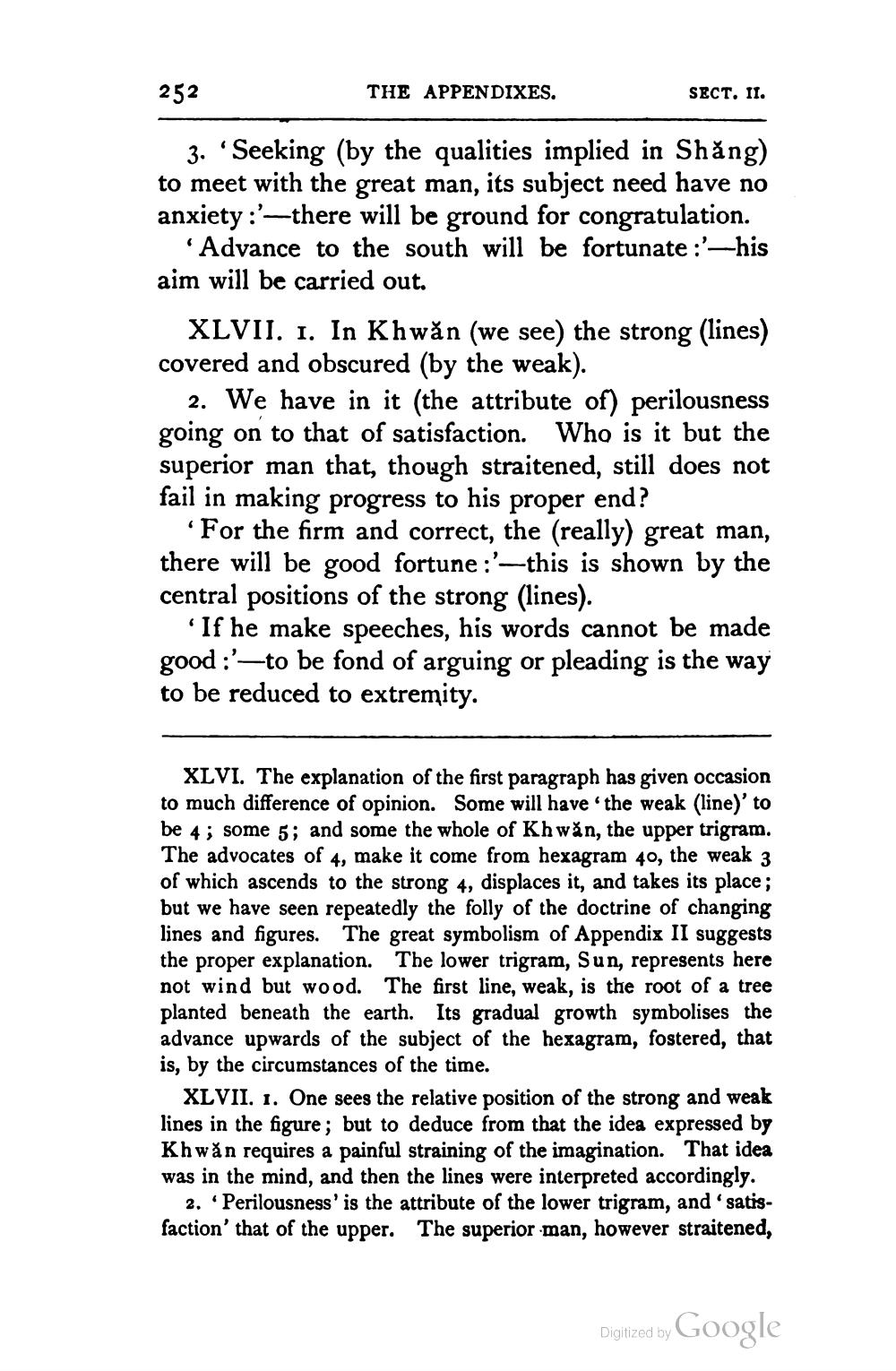________________
252
THE APPENDIXES.
SECT. II.
3. 'Seeking (by the qualities implied in Shăng) to meet with the great man, its subject need have no anxiety :'--there will be ground for congratulation.
Advance to the south will be fortunate :'-his aim will be carried out.
XLVII. 1. In Khwăn (we see) the strong (lines) covered and obscured (by the weak).
2. We have in it (the attribute of) perilousness going on to that of satisfaction. Who is it but the superior man that, though straitened, still does not fail in making progress to his proper end?
'For the firm and correct, the (really) great man, there will be good fortune :'-this is shown by the central positions of the strong (lines).
'If he make speeches, his words cannot be made good :'—to be fond of arguing or pleading is the way to be reduced to extremity.
XLVI. The explanation of the first paragraph has given occasion to much difference of opinion. Some will have the weak (line)' to be 4; some 5; and some the whole of Khwăn, the upper trigram. The advocates of 4, make it come from hexagram 40, the weak 3 of which ascends to the strong 4, displaces it, and takes its place; but we have seen repeatedly the folly of the doctrine of changing lines and figures. The great symbolism of Appendix II suggests the proper explanation. The lower trigram, Sun, represents here not wind but wood. The first line, weak, is the root of a tree planted beneath the earth. Its gradual growth symbolises the advance upwards of the subject of the hexagram, fostered, that is, by the circumstances of the time.
XLVII. 1. One sees the relative position of the strong and weak lines in the figure; but to deduce from that the idea expressed by Khwăn requires a painful straining of the imagination. That idea was in the mind, and then the lines were interpreted accordingly.
2. Perilousness' is the attribute of the lower trigram, and 'satisfaction' that of the upper. The superior man, however straitened,
Digitized by Google




